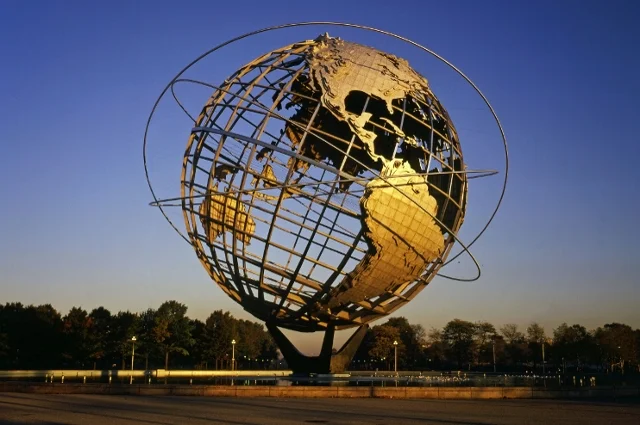Authors: Arta Moeini and Christopher Mott
Affiliation: Institute for Peace & Diplomacy (IPD)
Organization/Publisher: The National Interest
Date/Place: June 20, 2021/ USA
Type of Literature: Article
Word Count: 1940
Keywords: Liberal International Order, Ideological Solidarity, Exceptionalism, Realpolitik, the Foundations of Geopolitics, and American Global Hegemony
Brief:
The authors call for historical scrutiny of the claim by liberal internationalism advocates that “the liberal international order is universal and exceptional.” According to the authors, such a claim is based on an assumption and needs to be revised, as it in essence says that: “liberal societies are inherently more peaceful (if not better and superior), that they adopt (or should adopt) values-based activist foreign policies to spread that righteous way of life around the world” and form alliances to advance liberal ideals. According to the authors, the liberal order does not refer to the existence of such “ideological solidarity” between states as much as it reflects the imbalance of power at the international level after World War II that made the United States an absolute hegemonic power that imposes certain rules on it. What is exceptional over the past 75 years is “the sheer power that the United States was able to amass owing to its favorable geographic position and relative distance from bloody and costly conflicts across the oceans that guard its borders.” In the first part, the authors present historical arguments that refute the “assumption of ideological solidarity” between liberal nations or between nations of the illiberal bloc as well, explaining the main factors behind the behavior of states as enmity or amity. For example, the values of freedom of trade and the spirit of democracy that characterized Athens, Venice, and the Netherlands in history did not resolve these societies’ thirst for war and conquest at the time. Young America allied itself with the absolute monarchy of France but refused to support liberal revolutionary France in its fight against Great Britain. The factors of cultural affinity and trade ties alone were not a reason to prevent hostility between America and Great Britain, but the common geopolitical interests. With Britain’s sharp decline as a global power after World War II, London felt afraid of the Soviet Union’s rise in Europe, that is why it welcomed its new status under the anti-Soviet Pax Americana. Also, Western capitalist nations worked with the communist Soviet Union to overcome the Nazi threat with a great entente, then a great division occurred between them over dividing the spoils after the removal of the Nazi threat. Within the socialist ideological bloc during the Cold War, a country like Yugoslavia led by Tito challenged Moscow’s authority because it wanted to maximize its independence, as did Maoist China, while Deng Xiaoping normalized the People’s Republic of China’s relations with liberal America. Thus, the authors argue that Geography and context are the key determining factors in geopolitics, not ideological solidarity between distant countries with divergent circumstances. Great powers often compete to achieve maximum autonomy and international recognition and are often willing to sacrifice ideology to achieve these ends. It is clear here that the authors adopt the premises of structural realism in the analysis of international politics. In the second part, the authors refute the argument of the “exceptionalism of the liberal international order” led by the US to this general trend of nations engaging in realpolitik interest aggregation, as the authors argue. This claim ignores the fact that the Western alliance depends much more on the primacy of American power and its ability to influence than on an assumption based on American exceptionalism as a liberal democracy. This “exceptional” liberal international order is only the result of the absolute American supremacy after 1945, which reached its climax in 1990 and enabled Washington to impose certain rules on it. It never reflects the existence of any “value ideological solidarity”, so it is not surprising that this order today appears unstable with the decline of US power and the rise of other powers from the non-Western world. Finally, the authors offer a set of recommendations that would help statesmen to manage the ongoing international rivalry. It would be harmful, for instance, to build alliances on ideology rather than on the interests of states. Basing alliances on shared values threatens to create an environment in which ideological differences between nations are magnified and “threats” are exaggerated accordingly, as well as the diplomatic efforts between ideological opponents would be sabotaged even when strategic interest dictates otherwise. This is evident in the West’s dealings with countries such as Iran, North Korea, and Russia today. It would be wise for NATO countries to see the alliance as a strategic resource aimed at aggregations of interests in order to achieve desired geopolitical outcomes, not as a tool for a utopian crusade for the soul of the world or as a tool for advancing abstract universal principles and imposing the values of a nation or group upon others. International politics should be viewed through the lens of realism, so the idealistic attempt to implant notions of exceptionalism, moral universalism, or missionary zeal in the foundations of geopolitics should be abandoned. Throughout history, states have not been defeated by the strength of competitors but by hubris, over-confidence in norms and beliefs, moral narcissism, and overstepping the necessary boundaries as Thucydides observed thousands of years ago.
By: Djallel Khechib, CIGA Senior Research Associate




